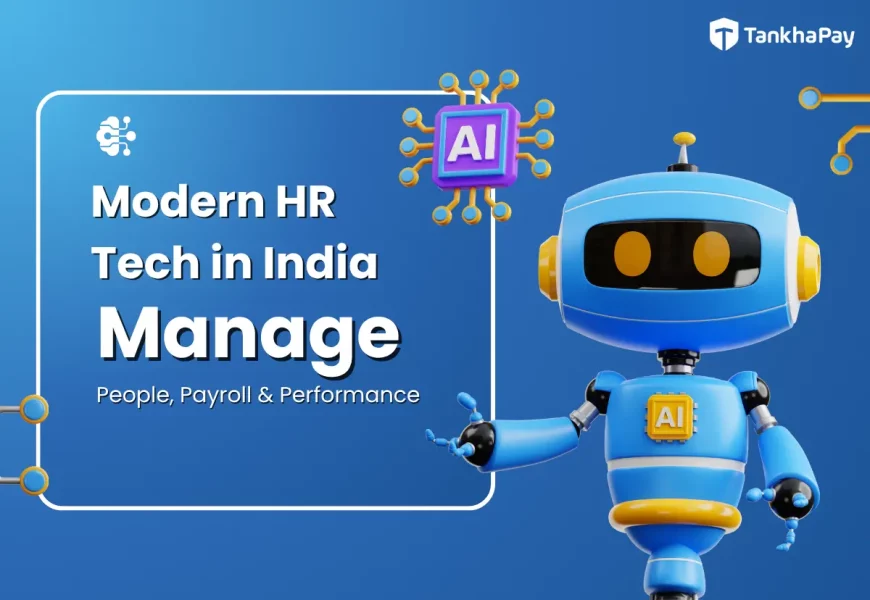Introduction
India’s workforce is vast, diverse, and dynamic, with over 500 million workers across various sectors. Managing this workforce efficiently has become a priority for businesses, and HR software in India is at the forefront of this transformation. HR technology is revolutionizing workforce management by streamlining processes, enhancing employee engagement, and enabling data-driven decisions. This blog explores how HR tech is reshaping the Indian workplace and why it’s a game-changer for businesses.
The Rise of HR Software in India
The adoption of HR software in India has surged in recent years, driven by digital transformation, remote work trends, and the need for scalable solutions. According to a 2023 report by NASSCOM, the Indian HR tech market is expected to grow at a CAGR of 12% through 2027, fueled by startups and global players offering innovative solutions tailored to Indian businesses.
Key factors driving this growth include:
- Digitalization: Companies are moving away from manual processes to cloud-based HR platforms.
- Remote and Hybrid Work: The shift to flexible work models has increased demand for tools that manage distributed teams.
- Employee Expectations: Modern employees expect seamless, tech-driven experiences, from onboarding to performance management.
Key Features of HR Software in India
Modern HR software in India offers a range of features designed to address the unique needs of Indian businesses. These include:
- Payroll Management: Automated payroll systems ensure compliance with India’s complex tax laws, provident fund regulations, and statutory requirements.
- Recruitment and Onboarding: AI-powered applicant tracking systems (ATS) streamline hiring, while digital onboarding tools create a smooth employee experience.
- Employee Engagement: Tools like pulse surveys and feedback platforms help organizations gauge employee satisfaction and address concerns.
- Performance Management: Real-time performance tracking and goal-setting features enable continuous feedback and development.
- Compliance and Reporting: HR software ensures adherence to labor laws and generates reports for audits and decision-making.
Popular platforms like Zoho People, Keka, and BambooHR have tailored their offerings to meet the needs of Indian businesses, from startups to large enterprises.
Benefits of HR Tech for Indian Businesses
The adoption of HR software in India brings tangible benefits to organizations of all sizes:
- Efficiency and Automation: Automating repetitive tasks like attendance tracking and leave management saves time and reduces errors.
- Data-Driven Insights: HR analytics provide actionable insights into workforce trends, helping businesses optimize talent management.
- Scalability: Cloud-based solutions allow companies to scale operations without significant infrastructure investments.
- Improved Employee Experience: User-friendly interfaces and mobile apps empower employees to manage their profiles, access payslips, and request leaves on the go.
- Cost Savings: By reducing manual work and improving productivity, HR tech lowers operational costs.
Challenges in Adopting HR Software in India
Despite its benefits, adopting HR software in India comes with challenges:
- Cost Concerns: Small and medium enterprises (SMEs) may find premium HR tools expensive.
- Resistance to Change: Traditional organizations may resist transitioning from legacy systems to modern platforms.
- Data Security: With increasing cyber threats, ensuring data privacy and compliance with regulations like the Personal Data Protection Bill is critical.
- Skill Gaps: Employees and HR teams may require training to fully utilize advanced HR tools.
The Future of HR Tech in India
The future of HR software in India looks promising, with emerging technologies like artificial intelligence (AI), machine learning (ML), and blockchain shaping the landscape. AI-driven recruitment tools are reducing bias in hiring, while predictive analytics help identify employee retention risks. Blockchain-based solutions are being explored for secure employee data management.
Additionally, the rise of gig and freelance workers in India is pushing HR tech providers to develop solutions for managing non-traditional workforces. Integration with other business tools, such as ERP and CRM systems, will further enhance the value of HR software.
Conclusion
HR software in India is transforming workforce management by enabling businesses to operate efficiently, engage employees, and stay compliant. As the Indian market continues to evolve, HR tech will play a pivotal role in helping organizations navigate the complexities of a dynamic workforce. By embracing these tools, businesses can unlock new levels of productivity and employee satisfaction, positioning themselves for success in the digital age.

